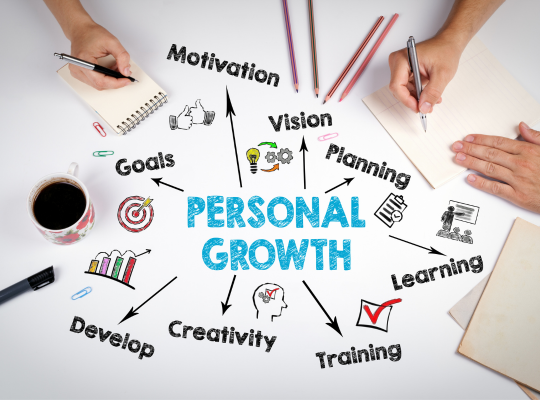In the fast-changing world of today, leadership is no longer about authority. With the rapid development of technology, diversification of workforce requirements and shifting global trends, leaders are forever required to change. For experienced industry leaders, it is essential to remain relevant by embracing leadership transformation and continuously honing their skills.
Leadership coaching for existing leaders helps in refining strategies, embracing new practices, and facing modern-day challenges to thrive. In this blog, we explore how coaching helps experienced leaders redefine their roles and remain impactful in the era of modern leadership.
Why Reinventing Leadership is Crucial
Leaders in general have changed significantly. Conventional hierarchies have been replaced with collaborative arenas that call for flexibility and innovation.
Challenges for Existing Leaders in the Modern Era:
- Rapid Technological Changes: Leaders must grapple with tectonic shifts due to AI, automation, and digital transformation.
- Diverse Workforce Expectations: Today’s workforce prioritizes their engaging and inclusive culture, flexibility and a relationship between work and the purpose behind it.
- Globalized Competition: Leaders need to tackle universal problems such as sustainability and market volatility.
Such demands require a change in styles of leadership; hence, reinventing leadership is essential for staying relevant and effective.
The Role of Leadership Coaching for Existing Leaders
Executive leadership coaching is for established leaders who need to enhance their role in their organizations. Unlike training programs that target general skills, coaching offers personalized guidance tailored to an individual’s strengths, challenges, and goals.
Benefits of Leadership Coaching for Existing Leaders:
- Strategic Adaptation: Coaching lets leaders adapt their strategies to changing forces and demands in the market.
- Enhanced Emotional Intelligence: Leaders are taught how to connect with various teams and build trust.
- Sustained Relevance: Leaders embrace an ethos of constant improvement to keep their approach effective.
Core Areas of Focus in Leadership Transformation
1. Modern Leadership Styles
Traditional command-and-control methods are giving way to participative and servant leadership approaches. Coaching helps leaders transition to styles that prioritize collaboration, empathy, and inclusivity.
2. Innovation and Agility
They must model change and encourage creativity in their teams. Coaching encourages an experimental mindset, and it equips leaders with tools for innovation.
3. Navigating Complex Challenges
Leadership today also means dealing with remote work dynamics, mental health and sustainability challenges. Through coaching, leaders are better able to make thoughtful, ethical decisions to tackle these complexities.
Reinventing Leadership through Coaching Strategies
1. Encouraging Self-Awareness
Effective leadership begins with understanding oneself. Coaching helps leaders reflect on their strengths, weaknesses, and blind spots, fostering authentic leadership.
2. Strengthening Communication Skills
In the fast-paced world of today, concise and meaningful communication becomes paramount. Coaching focuses on improving listening skills, persuasive messaging, and conflict management.
3. Building Resilient Leadership
The modern leader must be resilient in the face of uncertainty. Coaching gives leaders tools to remain calm, focused and resourceful in the face of adversity.
The Impact of Executive Leadership Coaching
The transformation brought about by executive leadership coaching extends beyond the individual. Organizations benefit significantly from leaders who are aligned with modern practices and equipped to inspire their teams.
Key Organizational Benefits:
- Higher Employee Engagement: When leaders build rapport with their teams, a culture of motivation and productivity is developed.
- Improved Decision-Making: A good strategic coach can help leaders weigh options and make better decisions.
- Sustainable Growth: Transformative leadership ensures organizations remain competitive and adaptable.
Leadership Coaching for Continuous Growth
Reinventing leadership is a journey, not a single coaching session or strategy update. Continued coaching allows leaders to continue evolving, innovating and developing.
Why Continuous Leadership Coaching Matters:
- Evolving Trends: Industrial shifts demand a commensurate shift in approach to leading.
- Team Development: Continually growing leaders learn better how to mentor and prepare their teams for success.
- Personal Fulfillment: Continuous improvement fosters leaders’ confidence and satisfaction in their positions.
Conclusion
In an era defined by complexity and change, modern leadership requires flexibility, innovation, and emotional intelligence. Leadership coaching for existing leaders is a powerful tool that drives leadership transformation, enabling seasoned executives to stay ahead of the curve.
By engaging in self-awareness, strategic thinking and intentional action, leaders can reimagine their roles and have a lasting impact. For organizations, an investment in executive leadership coaching is an investment not just in survival, but in sustained success in a rapidly changing world.
Leadership is not only about leading—it’s about reinventing. And coaching is the guiding light that illuminates the path for these leaders on their transformative journey.







